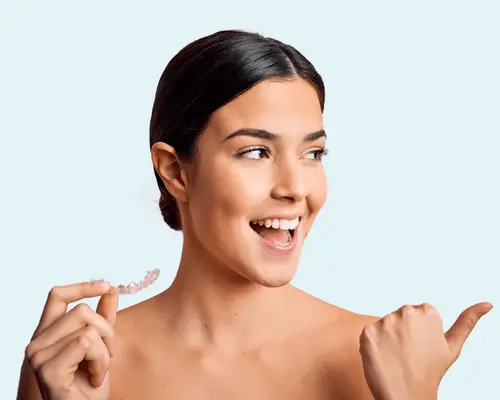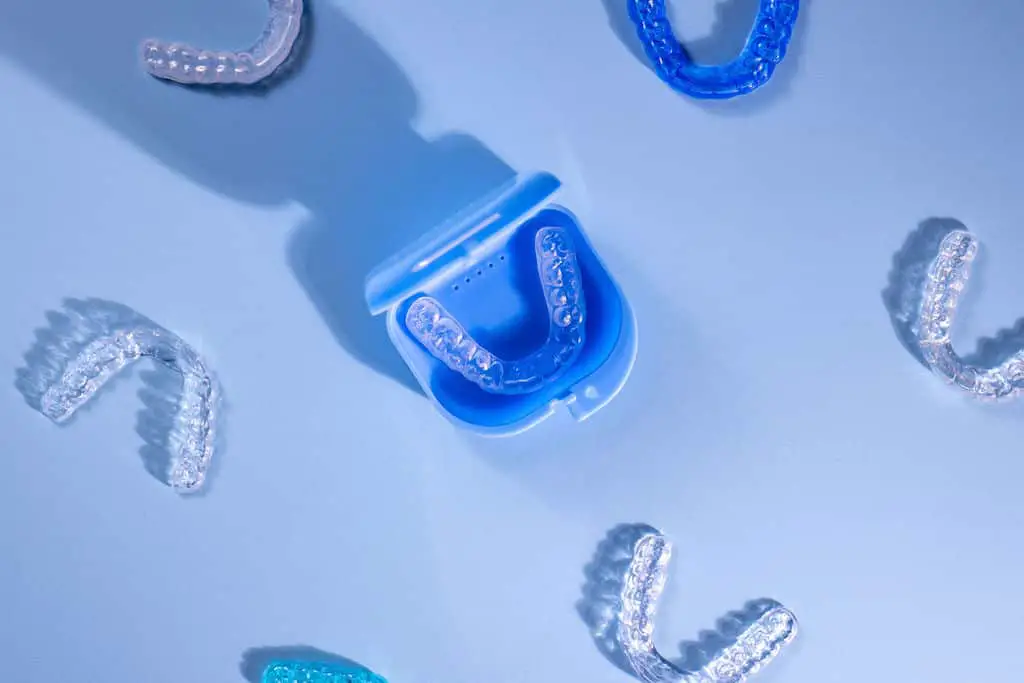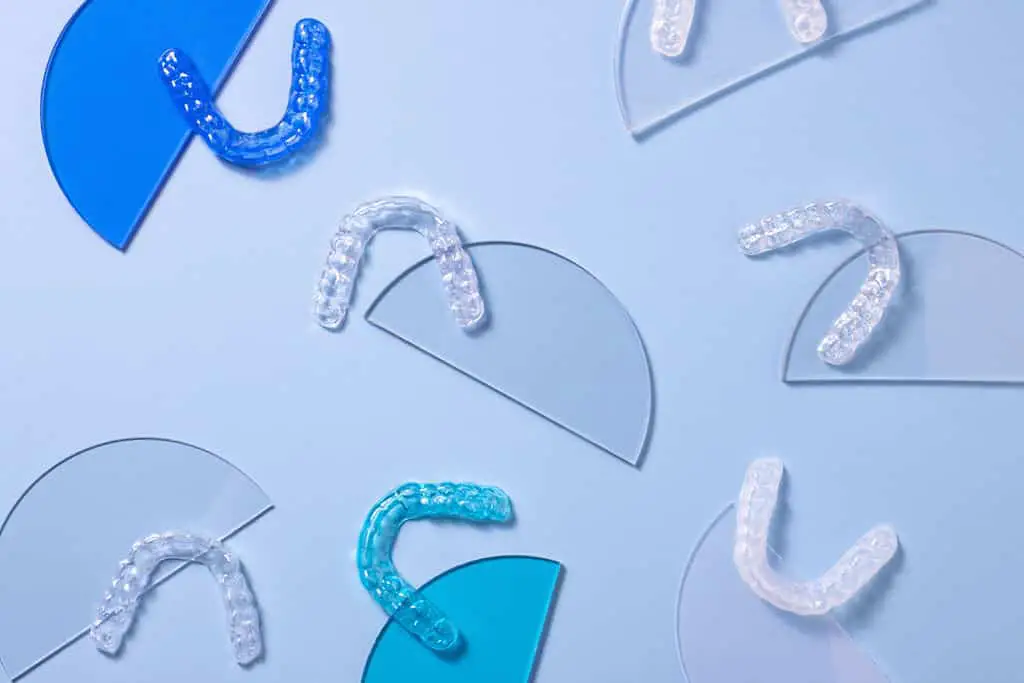What is Cheek Biting?
I come from a family of cheek biters. It is a pretty annoying habit, and I have learned it is one of many common body focused repetitive behaviours (BFRBs).
Cheek biting is a body focused repetitive behaviour that is a self-injurious behaviour. It is also known as morsicatio buccarum (“morsus” is the Latin word for “bite).

Basically it involves compulsively biting your cheek, and possibly also your tongue or lips. Often the urge to cheek bite is the result of feeling a bump or unevenness on the cheek and trying to remove this area. As you can imagine this can become a repetitive cycle.
It turns out a great way to get over this habit is to use a mouth guard, but I will cover other treatment options as well.
Why Do I Chew on My Cheeks
While I am writing about cheek biting as a habit, there are other reasons a person might bite their cheek:
- Chewing without paying attention and accidentally biting the cheek
- A tooth or teeth that is pushing out towards the cheek, can make it more likely to bite your cheek. This can happen commonly with wisdom teeth.
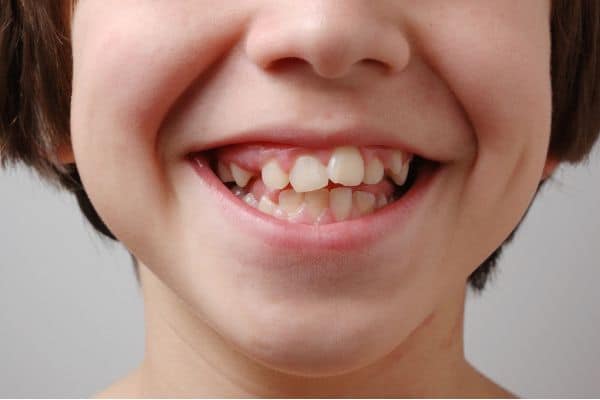
- The habit of cheek biting resulting from stress or which is similar to nail biting.
- Biting the cheek accidentally due to eating too fast, or talking while eating, or being punched on the cheeks.
- The habit of cheek biting that is compulsive, it can be known as obsessive‐compulsive cheek biting disorder (OCD).
- Biting the cheek unconsciously while sleeping, similar to teeth grinding.
- Having a cancerous or other lesion in the mouth. It is important to have an examination by a specialist if this is a possibility.
Why Do I Keep Biting My Cheek?
Cheek biting can be a habit (defined as a persistent and repetitive behaviour that does not serve any apparent social function and are fairly prevalent in the general population).
Cheek biting and similar habits usually occur during periods of increased anxiety or nervousness. This is because engaging in the habit results in momentary decrease in nervous tension.
The problem is that once this momentary decrease wears off, the nervous tension increases and the desire to engage in the habit again is negatively reinforced.

Cheek biting can be associated with depression, in one study they found that the ratio of educated patients with depression-related cheek-biting was 90%, while it was only 10% in uneducated patients. They took this to mean that social stressors could be associated with cheek biting.
Other Habits are Linked to Chewing on Cheeks?
Other related behaviours include chewing of the lips (morsicatio labiorum) and chewing of the borders of the tongue (morsicatio linguarum).
Other similar repetitive behaviours include trichotillomania (hair pulling), scalp picking, skin picking, nose picking or nail biting. These are all called Body Focused Repetitive Behaviours (BFRBs)

Physical and psychological stressors are associated with body focused repetetive behaviours.
In another post I wrote about scalp picking, but of course most of the information is applicable to other body focused repetitive behaviours.
Is Cheek Biting Linked to Neurodivergence?
Cheek biting and other Body Focused Repetitive Behaviours (BFRBs) may be more common in people who are neurodiverse (eg ADHD and/or autism) or having ADHD traits (also called Variable Attention Stimulus Trait) or autistic traits.
Why would this be? Well, BFRBs can be the result of poor impulse control, and impulsivity is one of the defining criteria for ADHD.
They also are a repetitive behaviour and ‘stereotyped or repetitive motor movements’ is a defining criteria for the diagnosis of autism.
And it is pretty obviously that BFRBs could be a feature of Obsessive Compulsive Disorder.
Is Cheek Biting Bad?
Cheek biting can be embarassing, particularly in social situations if you are doing it without realizing it. It could lead to avoiding social situations.
If done chronically, cheek biting can actually lead to wrinkles on the upper lip.
This might sound crazy but if you are a cheek biter, I suggest you sit in front of your mirror and bite your cheek as you normally do. See how you’ve pulled your lip over to one side? You are giving yourself wrinkles from this habit.
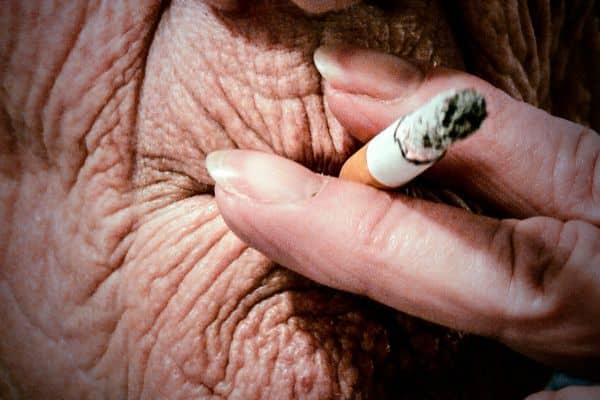
How do I know this? Because I was once asked if I was a smoker because of wrinkles on my upper lip while getting a facial!
Even worse, severe cheek biting can actually cause really bad mouth sores which can be painful and could get infected. In this scientific article they discuss a case of recurrent severe cheek biting in an adult male which resulted in mucosal ulceration.
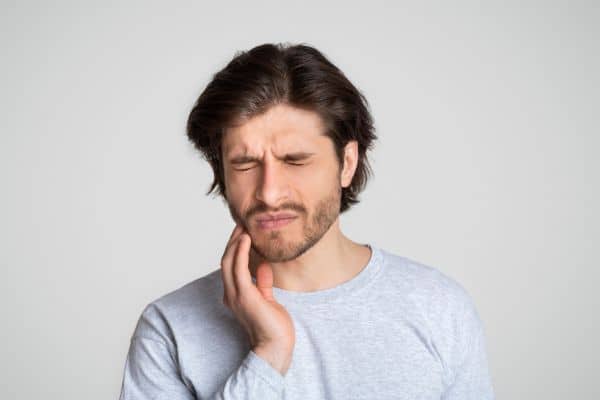
Dental Exam for Cheek Biting
Your dentist can help you rule out a serious cause of your cheek biting, like a lesion on the inner skin of your cheek. Don’t be embarassed to ask about cheek biting, dentists see it all the time.
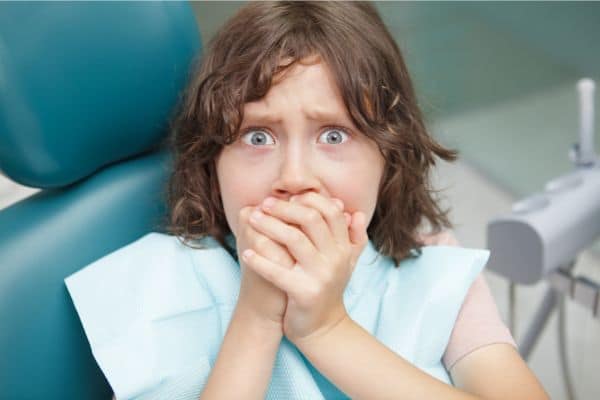
A tooth that is out of alignment can be fixed if this is the cause of the cheek biting. A wisdom tooth causing cheek biting can be removed.
Cheek Biting Buccal Shield
One dentist created a special device called a ‘cheek plumper’ for a 15 year old girl. Basically it is a retainer designed to push the cheeks out and make it impossible for the girl to bite her cheeks.
They did followup and found that after 6 months she had quit her habit!
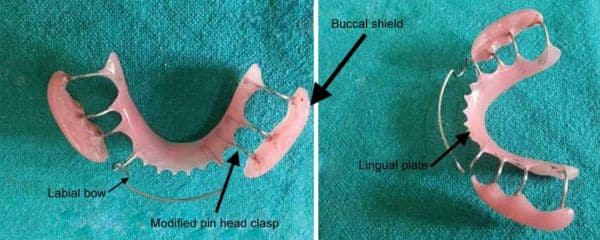
So we know mouth guards can reduce cheek chewing. But this version seems a bit extreme, and likely expensive!
Fortunately there is a more economical option!
Cheek Biting Mouth Guard
A mouth guard will stop cheek biting because with a mouth guard your teeth cannot grab the cheek to bite it!
You can try JS Dental Lab Mouth Guards, they send you a kit to make an impression of your teeth which they use to make a custom mouth guard for you. This is much cheaper than having your dentist make one.
But of course, you still want a quality product. Unlike other online mouth guard companies, JS Dental Lab was in business for 15 years before becoming an online company.
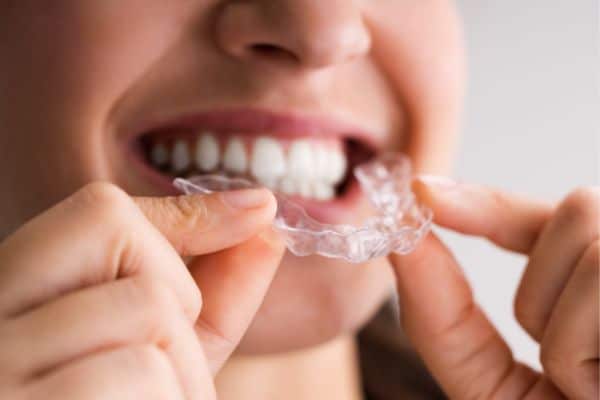
You need a properly made mouth guard because being able to wear the mouth guard is really important if you want to beat this habit. They know how to make a quality product and the reviews show it.
JS Dental Labs provides a variety of mouth guards so you can choose the one that is most comfortable for you. From ‘Extra Durable – Hard Shield for the Grinder’ to ‘Soft – Sensitive Teeth Protection’, you’ll be able to find the right option.
JS Dental Labs sends you a do-it-yourself impression kit so they can make a custom mouth guard just for you.
The reviews are very good. People appreciate the price, the custom fit, and how comfortable the guard feels.
They have a 365-day FREE return policy, and offer free adjustments for a full year after your purchase. And they have a 1 year replacement warranty if you bite or wear through it.
How To Stop Biting Your Inner Cheek?
Another option is to chew sugar‐free gum.

You can add gum to habit reversal therapy, where you replace one habit (cheek chewing) with a similar habit (gum chewing).
Habit Reversal Therapy Books
Since Body Focused Repetitive Behaviours are often associated with stress, reducing stress can reduce the habit.
Options of relaxation techniques are Non Sleep Deep Rest protocols like Yoga Nidra, breathwork techniques, progressive muscle relaxation etc.

Medication to Stop Cheek Biting
Selective serotonin reuptake inhibitors or N-acetyl cysteine has been recommended for the treatment of BFRBs such as cheek biting. However no medication has been approved by the Food and Drug Administration (FDA) for BFRBs.

Many people have found N-Acetyl Cysteine as a supplement helpful for various BFRBs. I wrote about N-Acetlyl Cysteine in my post on scalp picking, another body focused repetitive behaviour.
Habit Reversal Training to Stop Biting Cheeks
Habit reversal training (HRT) is widely considered a treatment of choice for BFRBs.
Habit Reversal Training Therapy involves awareness training (figuring out what triggers the behaviour) and progressive muscle relaxation. Then there is competing response training in which you learn to replace the habit with an alternative behavior (e.g., clenching of the fist for some time, sitting on one’s hands).
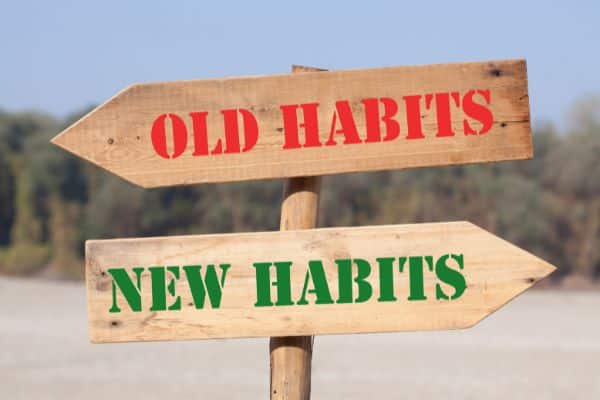
The authors of this study came up with a new variant of HRT for BRFBs – decoupling therapy.
Basically as you go to do a habitual movement that you are wanting to stop (eg. cheek biting) you do something else just before you were about to do the habit (eg. clenching your teeth).
The instruction is to close your eyes and imagine all the steps leading up to the habit (e.g., imagining the tongue probing the cheek and then the teeth pulling the cheek in to bite the skin). And then just before the completion of the habit (e.g., biting the cheek), the imagined movement is interrupted by an actual movement. For example, the teeth that had just been imagined should be clenched and then released and then the person swallows.

This way, the imagined usual sequence is terminated with a new behaviour (a counter-response.)
Habit Reversal Therapy Books
Treatment to Stop Cheek Biting Summary
The habit of cheek biting is a body focused repetitive behaviour. It is not uncommon, but not really discussed, and not studied very much. There are many treatment option such as:
- Seeing your dentist to rule out anything more serious
- Getting a custom mouth guard designed to prevent cheek biting
- Chewing gum instead of cheek biting
- Medications such as SSRIs or the supplement N-acetyl cysteine
- Habit Reversal Training Therapy
- Relaxation techniques like Non Sleep Deep Rest protocols like Yoga Nidra, breathwork techniques, progressive muscle relaxation etc.
There is even a kindle book Stop Cheek Biting: How to Quit the Habit of Chewing Your Inner Cheeks and Lips that you can check out!
References
- Association of cheek-biting and depression
- Cheek-biting disorder: another stereotypic movement disorder?
- Skin picking disorder comorbid with ADHD successfully treated with methylphenidate
- A Head-to-Head Comparison of Three Self-Help Techniques to Reduce Body-Focused Repetitive Behaviors
- On‐site treatment of oral ulcers caused by cheek biting: A minimally invasive treatment approach in a pediatric patient
- Cheek Plumper: An Innovative Anti-cheek Biting Appliance
